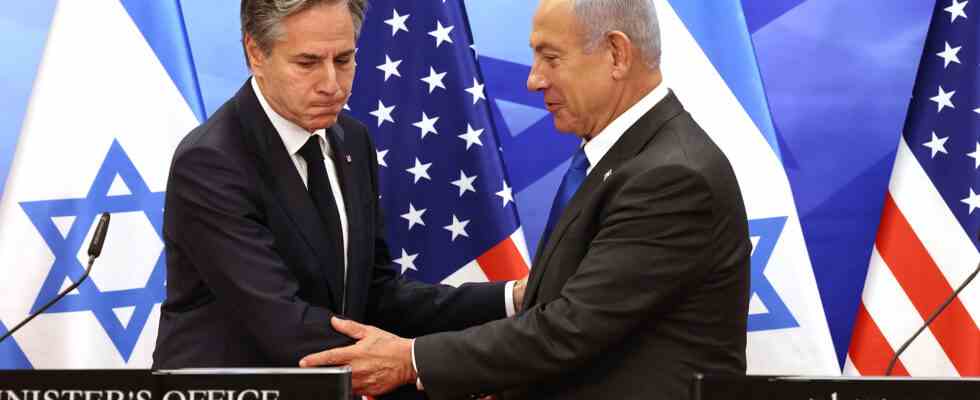Status: 01/31/2023 8:22 p.m
All signs point to escalation in the Middle East conflict. Nevertheless, during his visit to Israel and the West Bank, US Secretary of State Blinken tried his best to mediate. But he couldn’t find a solution either.
If you want to solve a conflict, you have to have staying power. Antony Blinken had a lot of staying power during his visit to Israel and the West Bank. He not only met his counterparts, but also Israeli Prime Minister Benjamin Netanyahu and Palestinian President Mahmoud Abbas. A sign of how important the mission is to the United States. De-escalating the escalating violence between Israel and the Palestinians – the goal of the trip – is nevertheless a mammoth task that Blinken was unable to solve.
“We have no illusions”
The US Secretary of State had to accept that at the end of the trip. “I heard a great deal of concern about the direction in which this is going. We are under no illusions that such tensions will resolve overnight.”
Blinken emphasized that each side must now take steps to prevent further violence and restore calm. “It’s the only way that people’s sense of security improves and they don’t have to be afraid anymore.”
Blinken announced a team of staff would remain in the area to continue talks. He himself wants to get in touch with other countries in the region in the coming days to discuss further ideas. Blinken did not explain exactly what those are – but repeated like a mantra that the USA wanted to stick to a two-state solution.
More than 650,000 settlers currently live in the West Bank, and Netanyahu’s new government has announced that it will continue to build settlements.
Strong criticism of Israel
At least Blinken was clearer here than he was the day before after meeting Israel’s prime minister: “The United States is opposed to anything that threatens a two-state solution.” These included, among other things, the expansion of settlements, the legalization of illegal outposts and steps towards the annexation of the West Bank. And: “Disrupting historical agreements at holy places in Jerusalem, tearing down houses or driving them out of houses, and inciting violence.”
A clear dig at the new Israeli government, which announced similar measures after the terrorist attacks in Jerusalem, which are now the subject of controversial discussion. Among other things, whether it is right to punish the families of assassins – to use a kind of collective punishment.
Dimitri Diliani, a spokesman for Fatah, the largest faction of the Palestine Liberation Organization (PLO), which is chaired by Palestinian President Mahmoud Abbas, said: “If anyone thinks that such measures will bring calm, they are very wrong.” That’s the perfect recipe for more violence and more revenge: “We Palestinians have been here for a very long time, we’re not going anywhere and won’t let ourselves be expelled.”
Abbas expresses himself only in writing
Abbas himself did not appear in front of the cameras. In a written statement, he reiterated that he blamed Israel for the escalating violence. Only at the weekend did the autonomy authority terminate security cooperation with Israel.
According to observers, however, Abbas Blinken is said to have assured that he wants to act responsibly in these difficult times. It remains to be seen whether this means that the Palestinian President is ready to officially resume security cooperation with Israel.
Reluctance and shrinking hope – US Secretary of State ends Middle East visit
Bettina Meier, ARD Tel Aviv, 31.1.2023 7:55 p.m

